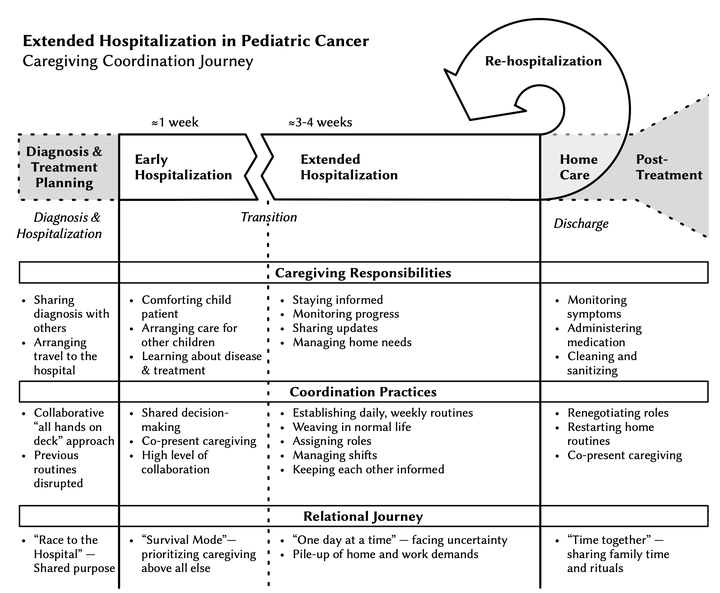Family Care Coordination in the Children’s Hospital: Phases and Cycles in the Pediatric Cancer Caregiving Journey
 A stage-based model of the caregiving coordination journey
A stage-based model of the caregiving coordination journey
Abstract
When a child is hospitalized with a serious illness, their family members must process emotional stress, quickly absorb complicated clinical information, and take on new caregiving tasks. They also have to coordinate with each other and with other family caregivers without abandoning existing work and home life responsibilities. Previous CSCW and HCI research has shown how the patient’s experience changes across the illness journey, but less is known about the effect of this journey on family caregivers and their coordination work. CSCW technologies could support and augment family care coordination work across the journey, reducing stress levels and improving families’ ability to stay connected and informed. In this paper, we report findings from an interview study we conducted with 14 parents of children undergoing extended hospitalization for cancer treatment. We propose the concept of caregiving coordination journeys and describe caregivers’ current communication and coordination practices across different phases of the hospitalization journey, from diagnosis and early hospitalization to extended hospitalization and beyond. We characterize families’ caregiving coordination routines across different time scales, and describe the current role of communication technologies in families’ coordination practices. We then propose design opportunities for social computing technologies to support and augment families’ communication and caregiving work during the hospitalization journey of their child.